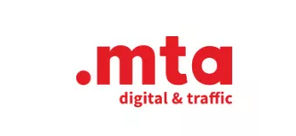Types of debt collection in Poland
Two fundamental types of debt collection processes are distinguished in the Polish legal framework.
Amicable debt collection in Poland
Once all the necessary information has been gathered, the stage of amicable debt collection can commence in Poland. Within this stage, various actions can be taken, including:
- negotiations;
- field debt collection;
- listing the debtor in the Debtors Register – but only after informing them of the possibility of such listing and specifying a timeframe;
- selling the debt claim.
The most common method for this stage is sending payment demands. It’s also an action that must precede the entry into the Debtors Register and often serves as an invitation to initiate negotiations. From a procedural perspective, it signifies an attempt to resolve the dispute extrajudicially, which is a necessary element of a lawsuit.
Amicable debt collection, also known as soft or pre-litigation debt collection, encompasses a set of actions taken before initiating a lawsuit. Its primary goal is to attempt contact with the debtor to achieve an out-of-court resolution to the dispute arising from the debtor’s failure to pay the due amount on time. Contact can be established through various means, including email, phone calls (both voice and SMS), regular mail, and even in person. It may involve activities such as:
Negotiations are voluntary discussions between the creditor and debtor, sometimes in the presence of a neutral mediator (in which case they are referred to as mediation). The aim is to reach a consensus regarding the repayment of overdue debts. This may include:
- splitting the total amount owed into installments and establishing a repayment schedule;
- extending the payment deadline;
- waiving the claim for interest or part of the obligation.
An extrajudicial settlement agreement is a document containing the agreements reached through negotiation/mediation. To secure the provisions arising from it, it is advisable to have it in writing. Key elements to include in it are:
- date and place;
- parties’ details;
- subject of the agreement and a description of the dispute;
- specification of the debt amount;
- the debtor’s acknowledgment of the debt which is important from a procedural standpoint;
- additional provisions regarding securing the debt claim which increase the chances of the debtor making timely repayments;
- signatures of the parties.
However, it’s important to note that the extrajudicial settlement agreement does not serve as a basis for potential enforcement by a bailiff. Continued failure by the debtor to meet their obligations can only result in the creditor terminating the agreement and initiating a lawsuit.
Field debt collection, which involves direct meetings with the debtor at their place of residence or work. Field debt collection is conducted at their registered office when the debtor is a company. The primary tool in this process is a conversation where arguments for debt repayment and the consequences of non-payment are emphasized. In general, it aims to exert psychological pressure that motivates the debtor to settle the debt. Additionally, it provides information about the debtor’s financial situation, which, when analyzed, helps determine the sources of their assets. It is them that, in case of unsuccessful amicable debt collection, will be distraint in order to obtain owed payment.
Sending payment demands, which are written notices containing:
- date and place;
- parties’ details;
- basis of the claim, such as a VAT invoice or a contract;
- the amount owed, which, when dealing with business entities, is increased by the appropriate amount according to Article 10 of the Act of March 8, 2013, on counteracting excessive delays in commercial transactions (Consolidated text: Journal of Laws of 2023, item 711, 852);
- due date;
- final payment deadline;
- bank account number for the payment;
- creditor’s signature.
The payment demand is sent by registered mail to the debtor’s address, allowing for tracking the delivery status, including whether and when the recipient received it.
A payment demand can serve different functions. When the deadline for performance is not specified or does not arise from the nature of the obligation, it serves as a notice under Article 455 of the Civil Code and determines the due date of the obligation. If the deadline has been defined in a previous document, such as a VAT invoice or a contract, as mentioned above, the payment demand also signifies an attempt to amicably resolve the dispute under Article 187 § 1 point 3 of the Code of Civil Procedure. Confirmation of such an attempt must be included in the content of any potential lawsuit.
Undoubtedly, the most satisfying response to such a payment demand would be receiving due payment. From a procedural perspective, an equally important response could be the debtor expressing a willingness to engage in negotiations leading to an extrajudicial settlement – each time constituting an acknowledgment of the debt.
Listing the debtor in the Debtors Register. This is a database of Economic Information Bureaus containing data on the financial arrears of consumers and entrepreneurs. There are five such Bureaus in the Polish market:
- Debtors Register BIG InfoMonitor;
- National Debt Register;
- ERIF Debtors Register;
- National Telecommunications Debt Information;
- National Economic Information Bureau.
Listing a debtor in these registers must be preceded by a payment demand that includes information about the possibility of such listing. Additionally, the debtor must meet certain criteria; their debt must exceed 200 PLN for individuals or 500 PLN for entrepreneurs.
Being listed results in a loss of financial credibility for the debtor, which can directly impact their relationships with other businesses and financial institutions, thereby exerting psychological pressure motivating the debtor to repay the debt.
Selling the debt involves transferring the rights of the original creditor to a new purchaser while partially satisfying the original creditor. An assignment of claim contract for debt claims should include:
- date and place;
- parties’ details;
- description of the debt claim;
- the date of the debt claim transfer and its price;
- information on who will inform the debtor of the change in the creditor.
Debt claims are most often purchased by companies specializing in this field with substantial capital. The term “factoring” has emerged from the names of these companies. In principle, factoring contracts are based on an assignment of claim contracts. However, the parties involved can only be entrepreneurs: the factoring company and the creditor in a separate legal relationship seeking to sell the debt claim.
The price offered for the sale of debt claims is generally lower than the amount specified in the respective debt claim. Thus, the cedent or factorant will not be fully satisfied. However, it is a quick solution that allows to maintain financial liquidity without participating in debt collection proceedings
If amicable debt collection proves ineffective, meaning the creditor remains unsatisfied, and the previously gathered information indicates that the debtor has assets capable of covering the outstanding debt, especially if they are not currently undergoing bankruptcy or restructuring proceedings, the next step is aggressive debt collection.


































